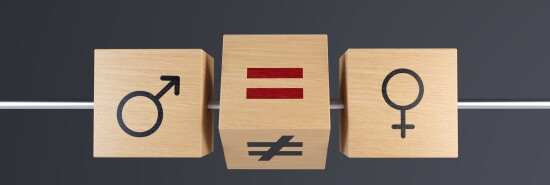
Brookings doubles down on the gender-gap fallacy
Peter Machera
Video Embed
According to Education Week, there’s yet another pay gap crisis. This time it’s between male and female teachers.
Male teachers supposedly earn more than their female counterparts. But how is this possible when teacher pay is typically determined by a structured and transparent salary schedule? As it turns out, male teachers earn more pay for “extra duties.” So, shall we call that sexism?
From Education Week:
“We are presenting evidence that female labor in public schools is systematically sidelined or devalued relative to men’s labor,” said Michael Hansen, a senior fellow in the Brown Center on Education Policy at the Brookings Institution and a co-author of a new report that quantifies the gender wage gap in the teaching profession.
According to the study by the Brown Center, female teachers make on average $2,200 less than their male counterparts — when you combine all sources of payment, including extra duties. This study was published by the liberal Brookings Institution. In a way, it is similar to the debate about the supposed gender pay gap in the larger economy. If you control the data for hours worked and the choice of profession, the wage gap almost completely disappears. Usually, feminists try to ignore this fact. But in this case, the study, instead of controlling for hours worked, views hours worked in itself as a kind of systemic bias.
If you’re a male in education, pretty much your only option to advance in terms of your income is to take on extra duties after school or during the summer, or to become a principal. For either of these actions, however, Education Week would deem you to be perpetuating the pay gap and contributing to the systematic “sidelining” and “devaluing” of “female labor.”
In a field where one sometimes hears that there is a need for more males to enter, this is not exactly a welcoming message.
The study further points out that male teachers are slightly more likely to leave (12%) if they work for a female principal rather than a male principal. Why might that be? It’s an intriguing piece of data that doesn’t necessarily suggest bias against females.
According to the study, male principals are more likely to help out male teachers, such as giving promotions or extra-duty pay, as a kind of solidarity in a female-dominated profession. The evidence for this was pretty thin gruel, but let’s assume that’s true. Yet, as Education Week’s own article about bias against females in education notes, 56% of principals are female, an imbalance that the article’s author Madeline Will does not find particularly disturbing.
A teacher is quoted in the article: “When you come into a profession that’s predominately women, you look for an ally in the room,” she said. “You reach out to the person you think you can relate to or build rapport with.”
Indeed, K-12 education has a 77% female workforce. Personally, I think it’s great to work with women. But it is also possible to feel out of step with the work culture, shall we say, just like women complain about working in male-dominated workplaces. A male principal knows how it feels to have the shoe on the other foot because he, too, was once a teacher. Is it wrong that he should show some empathy and solidarity, just as women are urged to show female solidarity?
It’s all about the way these issues are framed. The headline for this piece by Madeline Will in Education Week is: “The gender pay gap is a problem for teachers, too.” The article is absurdly framed as though women are being persecuted in education, which is so far from the truth as to be laughable.
How about an alternate headline: “Men also work longer hours and earn more in education.”
The article could go something like this: Rather than being put out by working in a female-dominated profession, men, with their irrepressible spirit, have found ways to still excel and increase their incomes in education. Despite being a minority in this profession, men have maximized their earning potential by taking on extra responsibilities to help students.
Peter Machera writes book reviews and opinion at michaelmacherablog.com. Follow him at @mistersir__
